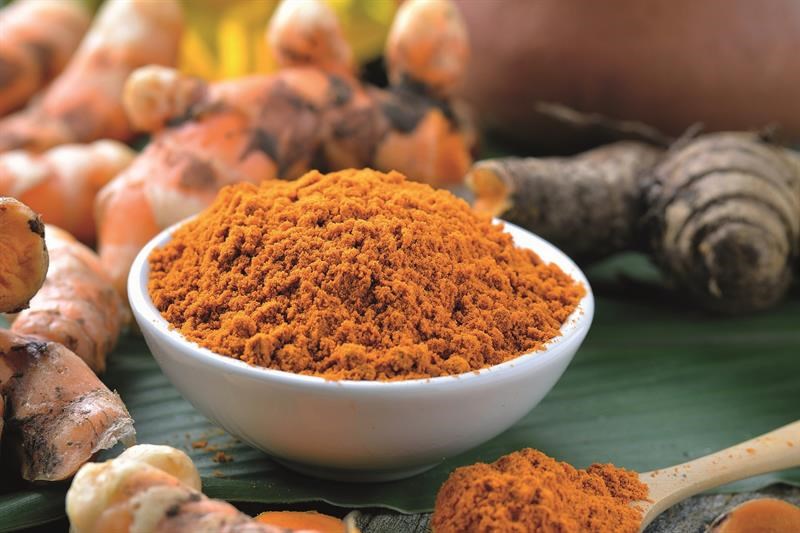People across Asia have used it to benefit health for centuries, Alexandra Frazer, Founder of EquiNutrative explains how this spice can also influence the wellbeing of your horse. First published in Carriage Driving magazine September 2018.
For the last couple of years, turmeric has been gaining traction as a wonder ingredient to help horses. There has been constant buzz about its many benefits. When there’s so much hype about something it can easy to dismiss as a fad, but the curative and health boosting benefits of turmeric are real and varied, meaning that a wide variety of horses can benefit from this root.
But what is turmeric? While you might have heard the recent news concerning its health benefits for humans, you might not know that it has a number of benefits for horses as well. To get you all the information, we’ve put together a quick primer on what turmeric is, what it does, and why it’s gold dust for your horse.
What is Turmeric?
Turmeric grows as a root and is a member of the ginger family and externally is looks almost identical to the ginger root. Turmeric is most commonly fed to horses (and eaten by people) as a powder - a yellow substance derived from the rhizomes, the underground stems of the turmeric plant.
The plant is native to India, where it has been used for centuries for both medicinal and culinary purposes. Historically, across the East, it has been used to treat a wide variety of conditions including cancer, stomach upset, respiratory problems and dermatitis. It also possesses powerful anti-oxidant properties.
How can turmeric improve your horse’s health?
In clinical trials, the results showing the positive effects of turmeric have been outstanding, with promising results for equine benefits. The most commonly touted research is that which relates to the anti-inflammatory properties of the root, which are derived from curcumin and a range of other active components in the plant working together to great effect. There is also widespread anecdotal evidence suggesting that turmeric is highly effective for improving horse health and treating a wide range of equine conditions.
Perhaps the most important and relevant benefit of turmeric for horse owners is its exceptional anti-inflammatory effects, which is excellent news for joint health in horses—turmeric is able to reduce inflammation and the associated pain substantially when added to the horse’s diet.
Is turmeric better than the alternatives?
Joint conditions are often chronic in nature and therefore become very difficult to manage effectively without serious side effects. Long-term use of NSAIDS in horses is always problematic due to the various side effects they produce, particularly with respect to the digestive system.
Turmeric doesn’t interact with gut enzymes in the same way that pharmaceutical non-steroidal inflammatories do, because it allows the gut-protecting enzyme (COX-2) to be maintained. In short, turmeric is able to give similar benefits as pharmaceutical solutions to joint pain, but without the associated gut disturbances and other negative side effects.
Tips for Use:
Turmeric has a low level of bioavailability, meaning that it is not readily absorbed from the small intestine. The absorption of turmeric can be enhanced with the addition of either oil or freshly ground black pepper and with that it becomes highly effective at combating a wide range of health problems including those related to the joints.
Whilst the active ingredient in pepper (piperine) can enhance absorption dramatically, it must be freshly ground to have the desired effect. Furthermore, pepper has been shown to irritate the lining of the stomach in some cases and cause gastric discomfort/upset, so oil is a more advisable carrier.
Adding oil to turmeric will provide ample absorption, and the oil, depending on the type used, can have additional health benefits. Best results will be achieved when using high quality oils, such as linseed oil, coconut oil or chia oil.
Does turmeric have any other health benefits for my horse?
In addition to joint health, turmeric has been shown to be effective in the treatment in many other ailments, including:
• Gastric ulcers
• Melanomas / Sarcoids
• Allergies
•
Assisting recovery from viruses and infections
• Wound healing
• Skin conditions
• Stabilising metabolic issues
•
Compromised liver function by having a detoxifying effect
The musculoskeletal system of the carriage driving horse is exposed to particular stressors and joints are likely to experience wear and tear. Turmeric is therefore likely to be of particular benefit to the carriage driving
horse and ensure that they’re joints are protected, maintained and supported throughout their careers.
For more information and free advice on Turmeric and other natural health products contact the team at EquiNutrative:
www.equinutritive.com on 028 9210 6070.
First published in Carriage Driving magazine September 2018
